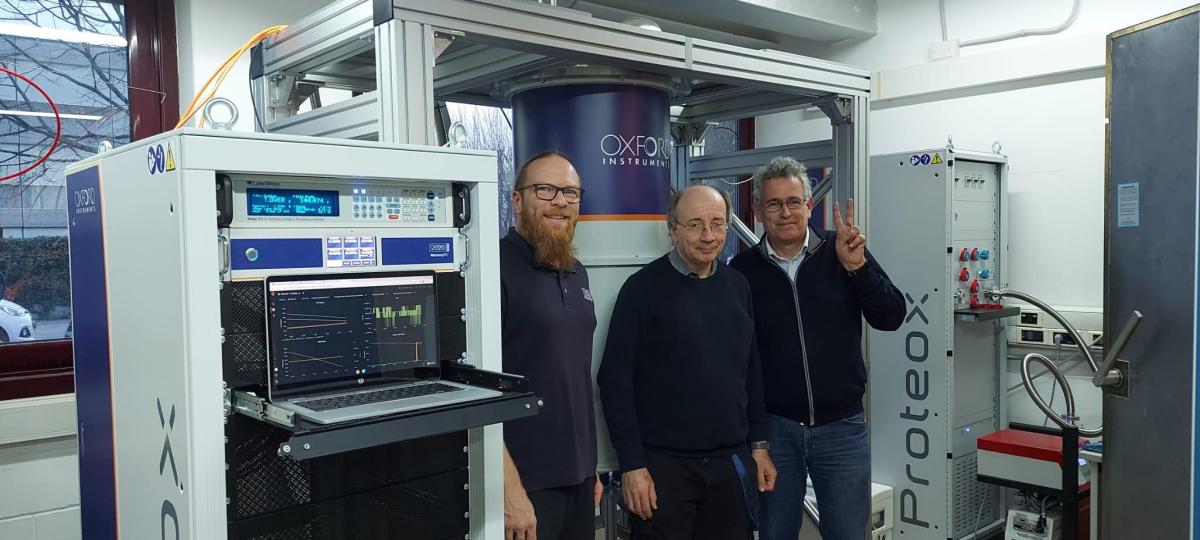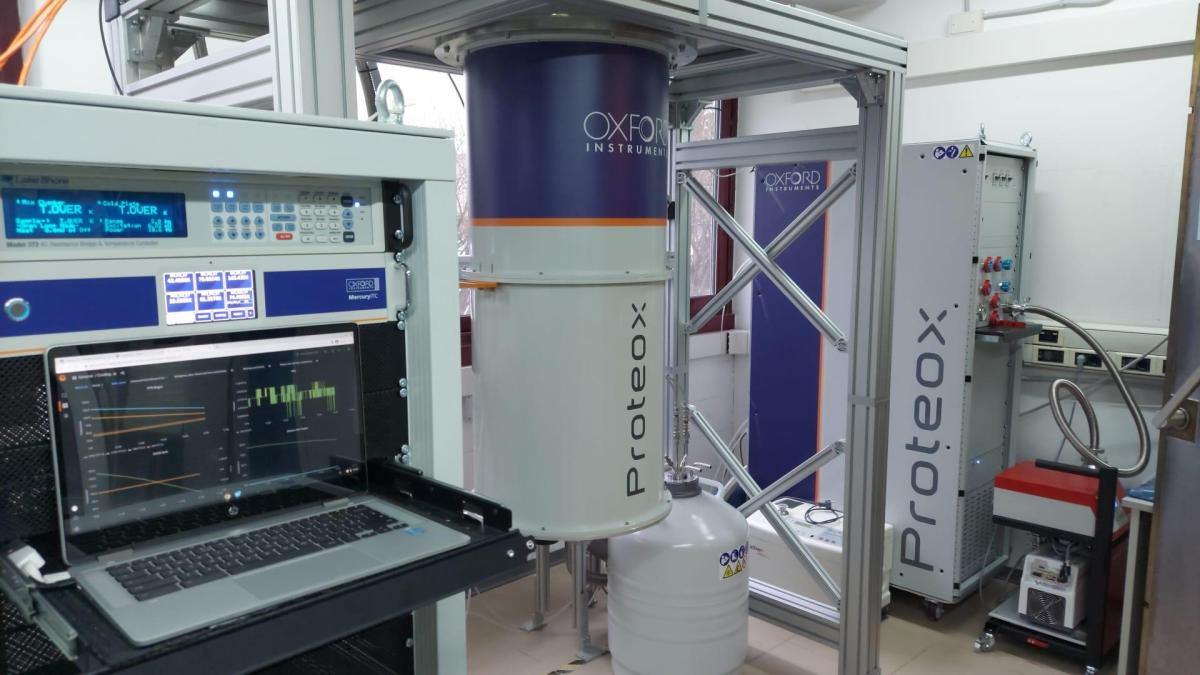Applications
 Part of the Oxford Instruments Group
Part of the Oxford Instruments Group
Expand
Collapse
Since 2019, Oxford Instruments NanoScience has supplied the University of Pisa with equipment for its state-of-the-art - and now award-winning - physics laboratories.
Pisa has a ProteoxMX being used in dark matter detection, superconducting quantum effect and qubit research. Having just last year signed a collaboration with the U.S. Department of Energy’s Fermi National Accelerator Laboratory (FermiLab), the university is set to grow its quantum research capacities even further.
And if that wasn’t enough, recently, the university’s Department of Physics and Department of Information Engineering both received a distinguished award of departmental excellence - topping the charts in their respective categories across all of Italy. Awarded in recognition of condensed matter and particle research and for research in artificial intelligence, human-centric systems, future networks and smart material devices respectively. The funding received alongside will be used to continue these activities.
One thing’s for sure: Pisa’s Proteox has a busy year ahead.
Last November, the University of Pisa announced its collaboration with the Fermi National Accelerator Laboratory in the US. Here, the university is working with The Superconducting Quantum Materials and Systems Center (SQMS), one of five research centres funded by the U.S. Department of Energy as part of its National Quantum Initiative to develop and deploy the world's most powerful quantum computers and sensors.
Under the leadership of Prof. Massimo Macucci, the research team in Pisa will be measuring noise and coherence in quantum devices, studying qubits provided by FermiLab. Proteox will be essential in this - correlating qubit coherence and noise in Josephson junctions, and participating in the development of measurement procedures together with other laboratories, with the ultimate goal of improving qubit coherence.
The work with SQMS will delve deeper into some of the biggest questions in fundamental physics research: quantum technologies for elementary particle physics and dark matter detection, as well as aid in developing functional platforms for quantum computing. Beyond joint research, students, doctoral, and post-doctoral candidates from Pisa can apply for internships and research positions with FermiLab, opening up more opportunities for international collaboration and knowledge transfer, which will ultimately contribute to the development and availability of advanced technologies.

The University of Pisa team with the ProteoxMX
Following all of this activity, a new joint laboratory for the Physics and Information Engineering departments was funded primarily by the Italian Ministry of University and Research through the national programme PNR (Programma Nazionale per la Ricerca), This initiative aims to strengthen the infrastructure of scientific research in Italy and boost interdisciplinary activities, with a specific focus on the emergent quantum technologies. Additional funding for the lab was provided locally at University of Pisa through its CISUP (the Core Facility Center of the University of Pisa), making the ProteoxMX system part of its instrument network and open to all researchers of low dimensional-materials, cryogenic optomechanics detectors, and more.

Speaking about why the laboratory chose the ProteoxMX, Simone Capaccioli, Director of CISUP, said “The design will allow an easy exchange between different experiments thanks to the multi-user and multi-experiment wiring fully integrated onto multiple Secondary Inserts. The customization and upgrade of acquired inserts are already planned for the near future.”
The university champions interdisciplinary research. “Our departments emphasise the importance of multidisciplinary knowledge in achieving our academic goals. The joining of forces between physics and engineering disciplines has led to a unique collaboration that we will continue to champion for applications like dark matter research and quantum computing,” adds Stefano Roddaro, Professor of Condensed Matter Physics at Pisa.
And this is just the beginning. With facilities housing the latest equipment for fundamental physics research and its unique collaboration with FermiLab to accelerate the development of quantum computing, the next few years are set to be ones of great advancement and discovery for the University of Pisa.
Here at NanoScience, there is nothing we love more than seeing our customers reach new research heights with the help of our technologies.